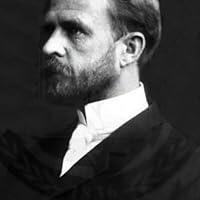
Thomas Hunt Morgan
关于作者
Thomas Hunt Morgan was an influential American geneticist who played a crucial role in the early development of genetics as a scientific discipline. He is best known for his groundbreaking work with fruit flies (Drosophila melanogaster), which provided key evidence for the chromosome theory of inheritance. Morgan's meticulous experiments demonstrated how traits were passed down through generations, laying the foundation for modern genetics. His research not only advanced the understanding of heredity but also earned him the Nobel Prize in Physiology or Medicine in 1933.
In addition to his research, Morgan was a dedicated educator and mentor, influencing many students and researchers in the field. He established the first genetics laboratory at Columbia University, fostering an environment that encouraged scientific inquiry and collaboration. Morgan's work has had a lasting impact on biology, influencing various areas such as evolutionary theory, molecular biology, and genetics. His legacy continues to inspire future generations of scientists.